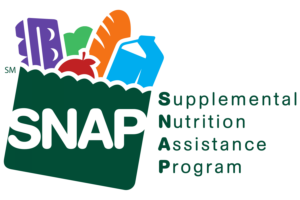 Recently, the Department of Agriculture (USDA) proposed a rule change to the Supplemental Nutrition Assistance Program (SNAP). Under current law, able-bodied adults without dependents are subject to the harsh time limit of only three months of assistance every three years if they do not work enough hours each week. However, the USDA can grant waivers in areas where unemployment is higher than the national average. Nearly every state has employed a waiver from the USDA in the past 20 years. This rule change would limit the ability to access these waivers, therefore limiting access to SNAP benefits for people who are unemployed or who do not meet a quota of hours of job training and/or work each week. Those who don’t meet the required hours would lose their SNAP eligibility after three months, regardless of how hard they are trying to find more work, more hours, or job training. In Washington State, 70% of counties with high unemployment rates would lose their waivers under this change, which would take SNAP benefits away from 80,000 people in our state alone.
Recently, the Department of Agriculture (USDA) proposed a rule change to the Supplemental Nutrition Assistance Program (SNAP). Under current law, able-bodied adults without dependents are subject to the harsh time limit of only three months of assistance every three years if they do not work enough hours each week. However, the USDA can grant waivers in areas where unemployment is higher than the national average. Nearly every state has employed a waiver from the USDA in the past 20 years. This rule change would limit the ability to access these waivers, therefore limiting access to SNAP benefits for people who are unemployed or who do not meet a quota of hours of job training and/or work each week. Those who don’t meet the required hours would lose their SNAP eligibility after three months, regardless of how hard they are trying to find more work, more hours, or job training. In Washington State, 70% of counties with high unemployment rates would lose their waivers under this change, which would take SNAP benefits away from 80,000 people in our state alone.
This proposed rule change works in opposition to Congress, who rejected these changes when they passed the 2018 Farm Bill. It threatens legitimate harm to the health and well-being of individuals who cannot afford to lose SNAP benefits. It hurts grocery retailers, farmers, and agricultural producers by reducing the amount of SNAP dollars available to spur local economic activity.
We ask you to submit a public comment that shows your opposition to this proposed rule change. FAN is part of the ELCA’s State Public Policy Office network, and we offer their link to submit a comment. Please personalize the included message by adding a few sentences of why this is important to you or anything else you might like to include. The public comments are only counted by the federal agencies if they are unique from one another. While the language included in the link’s suggested comment is specifically Christian and Lutheran, you can change the language if it does not apply to you, or simply post your comment directly to the federal register. The comment period closes on April 2, 2019.
Leave a Reply